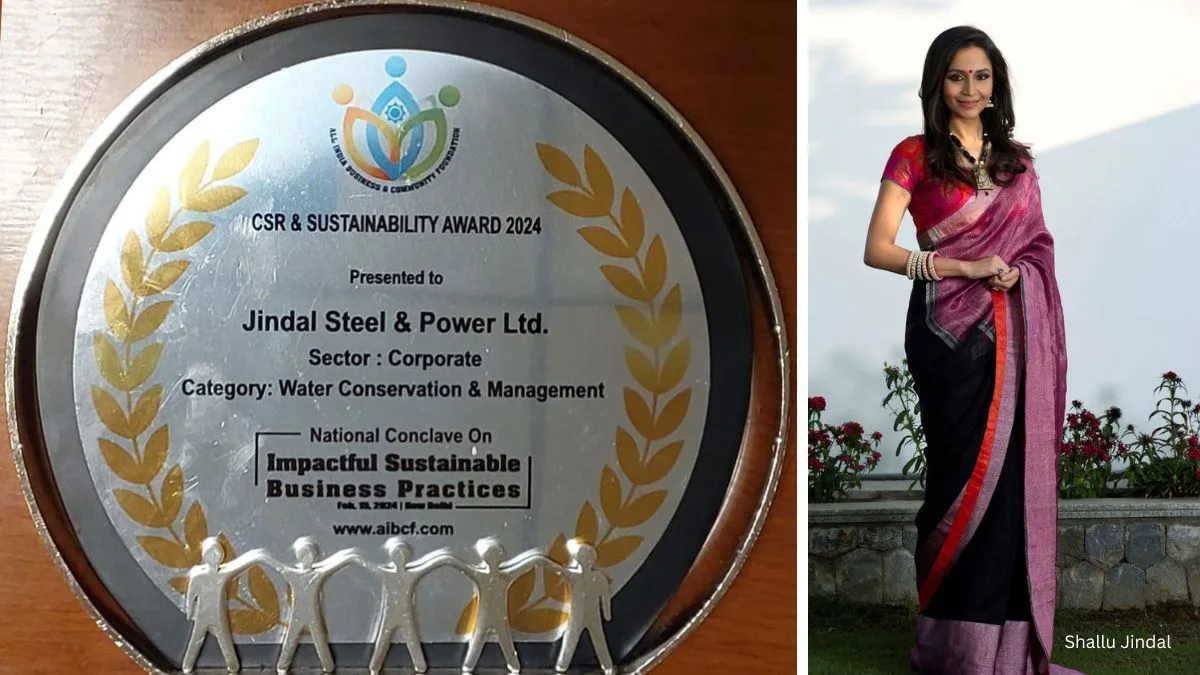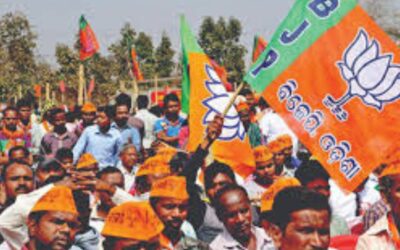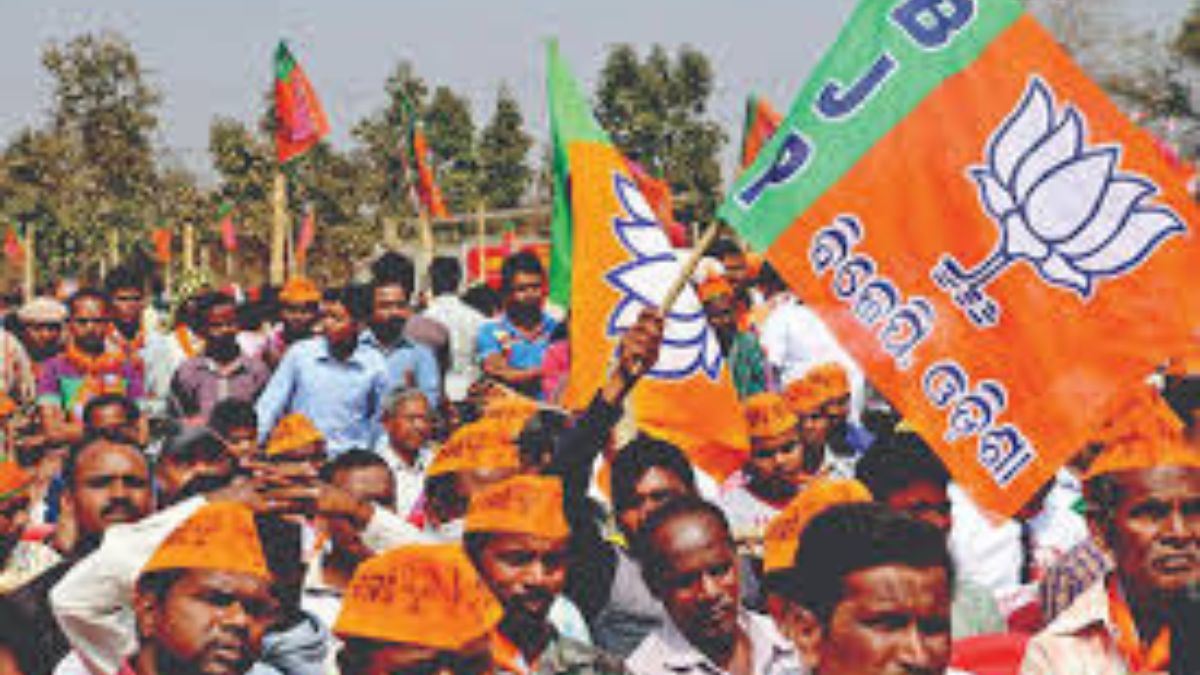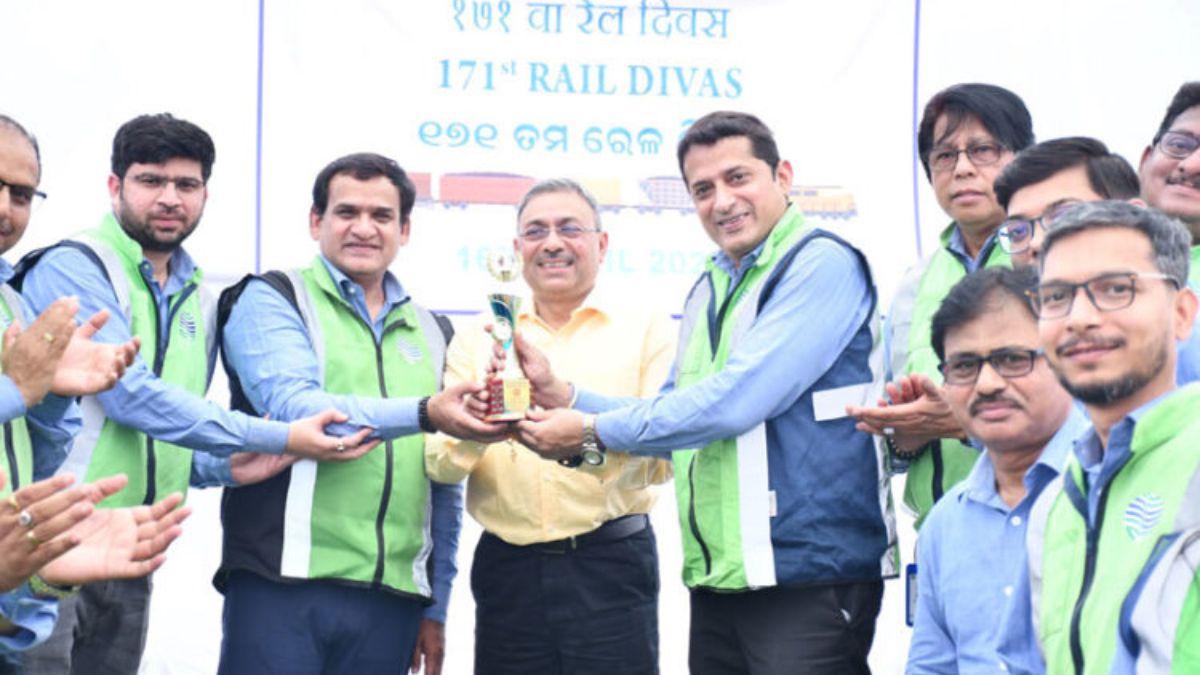Jindal Steel & Power(JSP) Receives CSR Award For Sustainable Water & Soil Management

Bhubaneswar: Jindal Steel & Power (JSP) has received the prestigious CSR & Sustainability Award 2024 for its exceptional work in water conservation and management, specifically in uplifting farmers in Angul, Odisha. Through collaborative watershed management projects with NABARD, JSP has positively impacted the lives of farmers in Angul.
The award was accepted by a company representative at the National Conclave on Impactful Sustainable Business Practices in New Delhi on February 15, 2024. Distinguished guests, including Ms. Rekha Sharma, Chairperson of the National Commission for Women; Shri Sunil Shastri, President of the Lal Bahadur Sastri Foundation; and Dr. Vijay Jolly, Senior Politician, graced the occasion, which was organized by the All India Business & Community Foundation.
Under the leadership of Chairman Shri Naveen Jindal, Jindal Steel & Power has made significant advancements in natural resource management and agricultural development in Tubey, Kulei, Derjang, Maratira, and Madhiamunda villages of Angul District. Through the implementation of watershed projects in Derjang and Tubey, managed by the JSP Foundation, soil erosion has been minimized, groundwater recharge has been maximized, and agricultural production, productivity, and income have all seen improvements, positively affecting over 5000 farming families.
Smt. Shallu Jindal, Chairperson of the JSP Foundation, expressed gratitude for the award, emphasizing the company’s commitment to sustainable development and economic prosperity for local communities while safeguarding the environment. The watershed projects initiated in 2012 in collaboration with NABARD have significantly improved soil moisture levels in the area.
Furthermore, the introduction of new cash crop varieties has led to a shift from monocropping to double and triple cropping among local farmers, resulting in increased income from Rs. 1.5 lakh to over Rs. 5.5 lakh. These initiatives have also stemmed migration, increased school attendance, and facilitated the formation of multiple Farmers Producer Organizations (FPO) in the villages, empowering local farmers.











